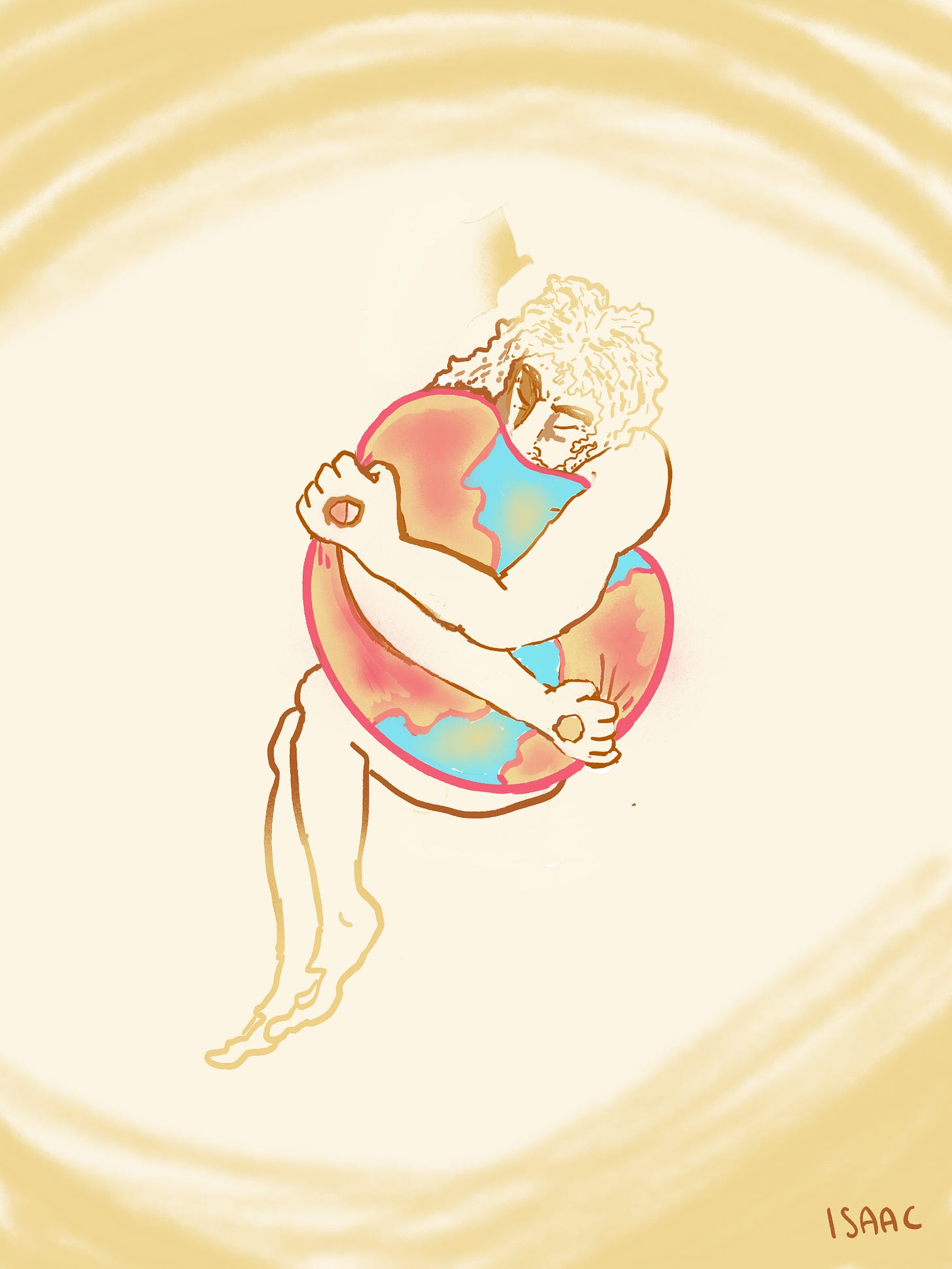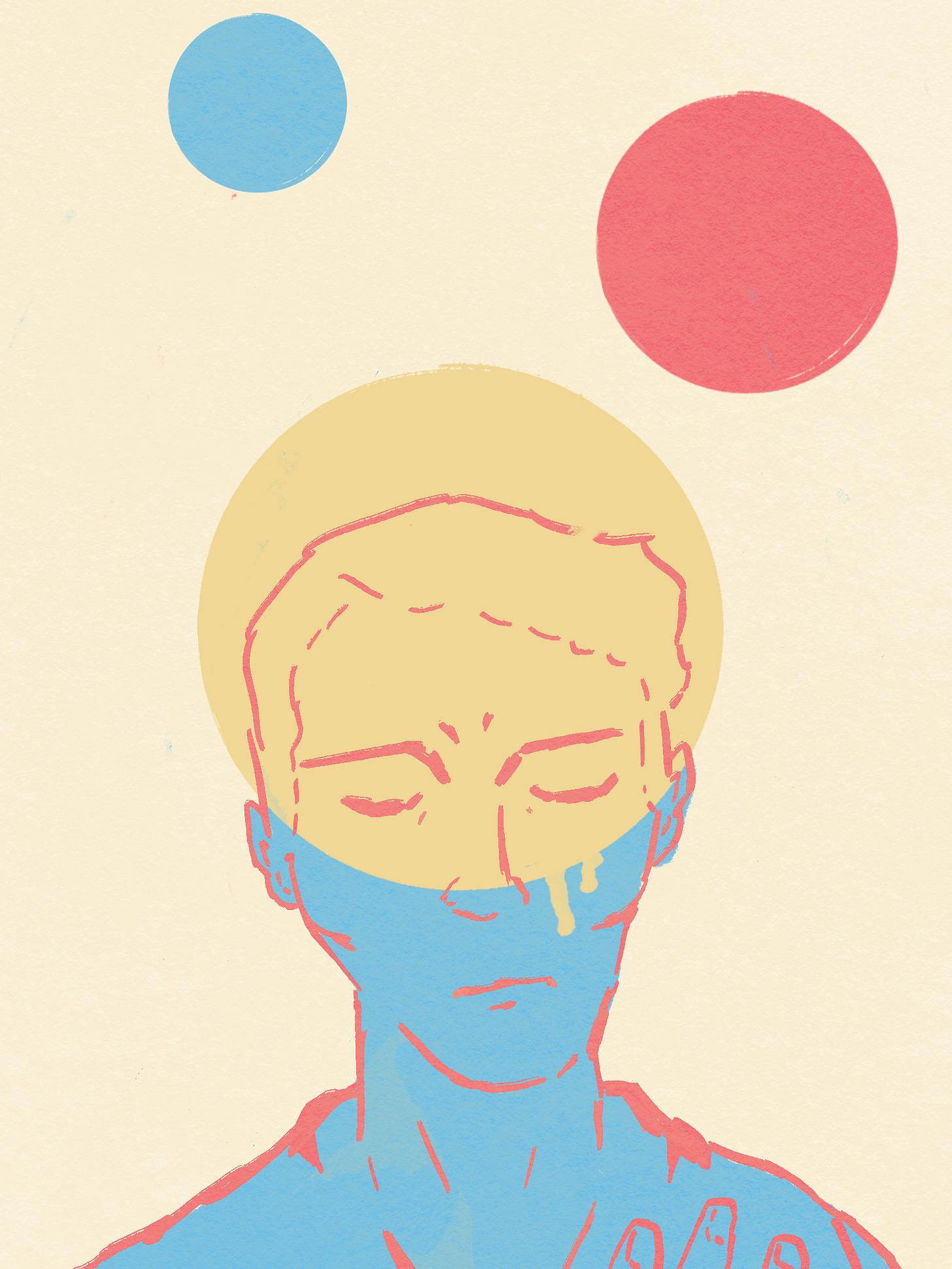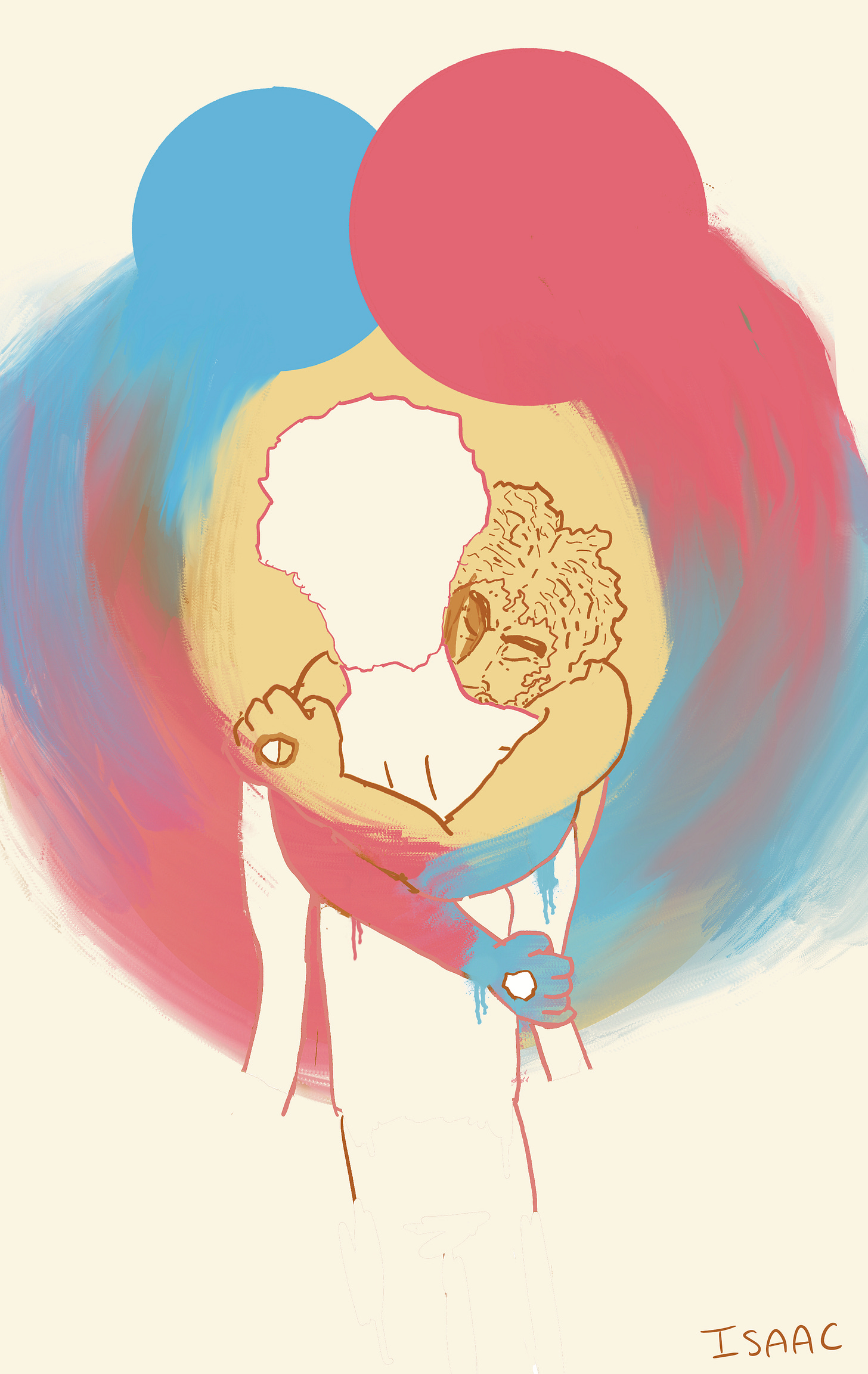
Often as a child, I felt as though I had to have it all together, all the time or I was going to hell. You can imagine my relief to discover 1 John 1:9. It is a passage of Scripture that clearly says, in summation: “if you ask for forgiveness, God will give you forgiveness”. The old Christian heresy that you had to be perfect after you were baptized crept into my thinking. Whether it was from my own readings of Scripture, or how I heard different adults over the years, I just didn’t really know grace existed. And if it did, it was quickly and anxiously followed up with: “but you must obey to be sure you’re saved”.
This pressure was overwhelming. Especially since I wasn’t even baptized yet, so I felt I could go to hell at any moment. God wasn’t safe, the world wasn’t safe, and it was all on me. This idea that I had to have it all together, all the time, or else I was going to hell was something I carried. But anytime I felt that way, I just turned to 1 John 1:9 to know, beyond a shadow of a doubt, I am safe and loved. That verse pierced through the false dogmas and fundamentalism, straight to the heart of the Divine Parent for me.
The whole idea that God dangles people over hell is something that I have given up a long time ago. But, nevertheless, hell is still very real. Turn on the news and you’ll see it, see what our government is doing right now to those granted refugee status. See the Christians who are in support of this. See the genocide in Gaza. The war in Ukraine. Evidence of hell is all around. But even on a personal scale the reality of hell is real. Losing a spouse, losing a child, going through sexual abuse etc.
What can be done about hell? What has been done? Is getting fire insurance what believing in Jesus is all about, or did Jesus do something more?
For this, we turn to the East.
Eastern Perspective of Salvation
Throughout the liturgical calendar, starting in Advent, we saw a God who comes to us. A God who is not content to be a bystander while abject evil and suffering run rampant in the world. And with such a radical event, with God made flesh “moving into the neighborhood” as Eugene Peterson writes, this is naturally going to provoke reflection about what actually this means.
Our brothers and sisters in the Eastern tradition gave us a gift as they reflected on Christ’s incarnation, death, and resurrection. They said that God becoming man makes man become like God. And they aren’t just coming up with this out of nowhere.
“Through [his divine power] he has given us his very great and precious promises so that through them you may participate the divine nature and escape the corruption in the world caused by evil desires”
2 Peter 1:4
The Eastern Orthodox perspective of salvation is primarily healing, and not performative. It is about getting to the hurt, broken, bruised, tender parts of yourself and allowing Holy Spirit to turn destruction into divinization. It’s not about getting out of Hell, but getting hell out of us, and out of our world. Jesus became man, participated fully in our nature, so that we may become like God, participating fully in God’s nature, while still God remaining God and us remaining ourselves, yet changed. Like metal heated by flame, as St. Gregory of Nyssa said, so are we when we are in the process of salvation. We begin to take on the characteristics of the fire, glow like the fire, have heat like the fire. We can become fully whole, and live a kind of life here now that can overcome anything, even death1, because of this God. Because this God came into the trenches with us, to pull us out to where God has always been.
“What is not assumed cannot be healed”, St. Gregory of Nazianzus.
This quote from one of the Eastern Fathers is a celebration of the full weight of the incarnation, and what it means for Christ to have taken on, not simply human flesh, but matter itself.
We are becoming divine as we participate in God’s freedom, life, and love, being saved The world is full of immense evil and suffering. Natural disasters, tsunami, tornadoes, floods. We are seeing more and more of these natural disasters as the climate worsens. And as our sacred story tells us, these events are rooted in beings who have autonomy to either to either choose God, or rebelling against the good will of God. The scriptures reveal to us a God who shares power rather than exerts it, and sometimes the beings he shares his power with, get it wrong. Absurdly wrong.
But all is not lost. Not for us, nor the natural world. In his sermon “The Great Deliverance”, John Wesley states that
“the whole brute creation will be restored,” and goes on: “not only to their strength, vigor, and swiftness which they had at their creation, but to a far higher degree of each than they ever enjoyed [at the beginning in paradise]”.2
This includes the animals, the fields, the mountains, the valleys, the climate, the trees, the flowers. Every atom and molecule. When Christ took on a human body, he didn’t just take on a human body. He took on matter, he assumed it into his divine nature. Thus healing all matter. The scope is his mercy is beautifully summarized by a 7th century saint:
What is a merciful heart? It is a heart on fire for the whole of creation, for humanity, for the birds, for the animals…and for all that exists. By the recollection of them the eyes of a merciful person pour forth tears in abundance. By the strong and vehement mercy that grips such a person’s heart, and by such great compassion, the heart is humbled and one cannot bear to hear or to see any injury or slight sorrow in any in creation. For this reason, such a person offers up tearful prayer continually even for irrational beasts, for the enemies of the truth, and for those who harm her or him, that they be protected and receive mercy. And in like manner such a person prays for the family of reptiles because of the great compassion that burns without measure in a heart that is in the likeness of God.
St. Isaac of Nineveh3
What we are talking about here is universal healing. Jesus, dying, because not only did he assume matter, energy, all of existence into himself, he assumed all of our evil, all of our sin, and death itself. He assumed all things, whether spiritual or physical, on the cross. This means in a way, on the cross, not only did he become sin as 2 Corinthians 5:21 states, but he became all things, or at least we can say he assumed all things, in a mysterious sense. He had to have, for, as the Fathers of the Church have written: “that which has not been assumed has not been healed”. He assumed a human nature, therefore becoming human and assuming all human’s nature, he assumed sin and death, he assumed matter, thus healing all matter.
And all things died on that cross with him, or rather, Jesus allowed the fullness of the state of everything— entropy, pain, destruction, chaos, death— fully into his body. And because all of creation had rebelled, all creation was dead. Jesus reflected this back to all of us as he himself died. He felt the forsakenness of God, for we had forsaken the God who never forsakes us. The God who would rather die than see one molecule without the chance to enter into his divinity, grace, and healing. For the entire world. For the whole universe.
But, if we simply see Friday, it leads into Saturday. And this is nothing new for us. Death and dying. Suffering and loss.
But, the story didn’t end there.
Sunday came.
And the one who was the New Adam, who carried the sin, evil, and death that oppresses us into the grave, came out of the grave to show not even the most powerful form of evil can stop Life. Life overcomes all, and the death and resurrection pattern that had always existed in all creation, in the seasons, in evolution, in dead animal bodies being fertilizer for new life to be borne, has a definite form. It has a shape. It has a Jewish face, body, and nail holes in the hands. And it is not simply a display of it, but is the moment ALL creation was patterned off of, and has been redeemed by. For he truly is the lamb slain before the foundation of the world, and also, king forevermore.
This is a universal resurrection. It’s not all on you to get better, to become more holy, to become more healed. That’s the work that God is doing in all of creation, that was inaugurated in the Resurrection. So if there are places in yourself you know you need healing, you feel hurt, traumatized, do not feel alone. We all have One hurt. We all have One sin. And Jesus became it, and overcame it.
As Richard Rohr points out, John the Baptizer didn’t say “behold the Lamb of God who takes away the sins of the world”, but rather “behold the Lamb of God who takes away the SIN of the world”.
It is One wound, One suffering, as Richard Rohr has written4. And therefore it was One cross that it was killed on, and One tomb where it was conquered forevermore. And it is not just the suffering of humanity that your suffering takes part in, but the suffering of all creation. Entropy itself. It can be overwhelming, the suffering of the world, but so is the overwhelming love of God, that truly wins in the end.
The embrace of Christ awaits you. If you’ve never let him into your life, you can right now. Today. And if you’ve already been on the journey, don’t freak out about your sanctification, or if you will be accepted or not based on your performance. Accept Christ assumed everything for you, when he died. When he died, you died, and so did your death, sin, and guilt. When he raised, you raised, so did all creation. Your growth is the same growth as the universe. Your groans join the same chorus of groaning as the universe (Romans 8:22), which are mysteriously also the groans of Christ on the cross. And our resurrection, through union with him, is the resurrection of all of us if we would simply let down our guard and let the will of God for our healing, and for the healing of everyone and all things.
In love did God bring the world into existence; in love is God going to bring it to that wondrous transformed state, and in love will the world be swallowed up in the great mystery of the One who has performed all these things; in love will the whole course of the governance of creation be finally comprised.
St. Isaac of Nineveh5
And as we heal, grow, and groan as an existence, we look forward to hearing the thunder of the fulfillment, knowing the lighting of the resurrection has already struck. We are safe and loved in God, and our healing belongs to one another, and to creation itself.
For the creation was subjected to frustration, not by its own choice, but by the will of the one who subjected it, in hope that the creation itself will be liberated from its bondage to decay and brought into the freedom and glory of the children of God.
We know that the whole creation has been groaning as in the pains of childbirth right up to the present time. Not only so, but we ourselves, who have the firstfruits of the Spirit, groan inwardly as we wait eagerly for our adoption to sonship, the redemption of our bodies.
Romans 8:20-23
Benediction
Death in you and under you
Death in the sky above you
Death in the blades of grass
Death in the trees and oceans
Death in all the lives you see around you
Resurrection under and all around you
Resurrection in the sky above you
Resurrection in all blades of grass
Resurrection in trees and oceans
Resurrection in every person you see
Resurrection in you
Happy Easter.
Amen.

Rob Bell, “You Made it Weird” Podcast, Episode title: “Rob Bell”
Alister McGrath, “Theology: The Basic Readings”
https://glory2godforallthings.com/2006/11/01/words-from-st-isaac-of-syria/
https://cac.org/daily-meditations/one-life-one-death-one-suffering-2019-09-25/?utm_source=chatgpt.com
https://glory2godforallthings.com/2006/11/01/words-from-st-isaac-of-syria/






A beautiful reflection, Isaac